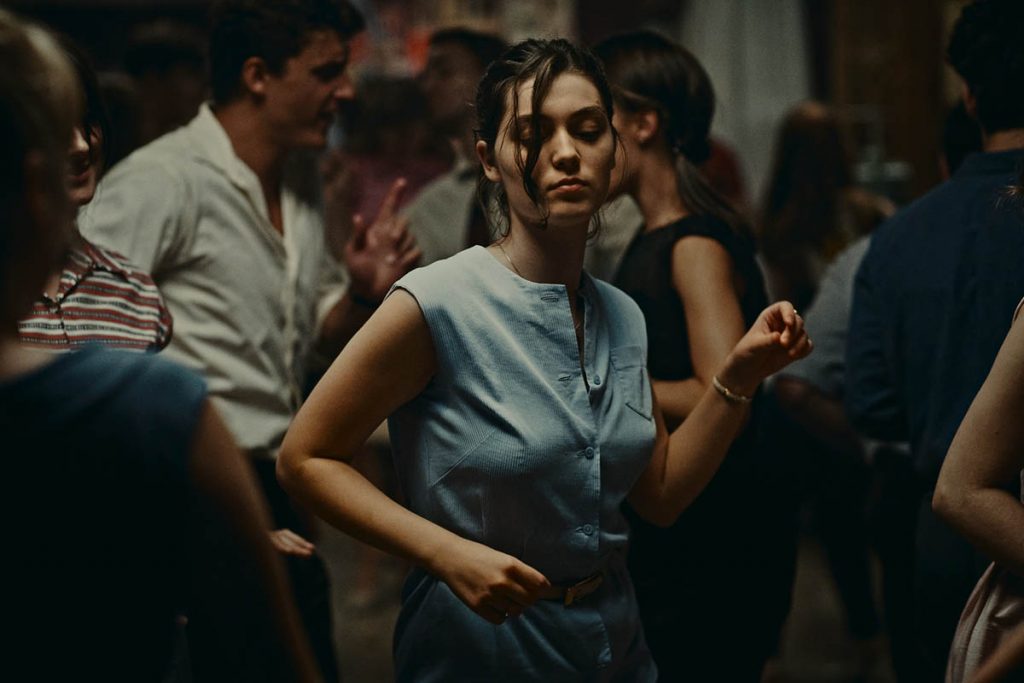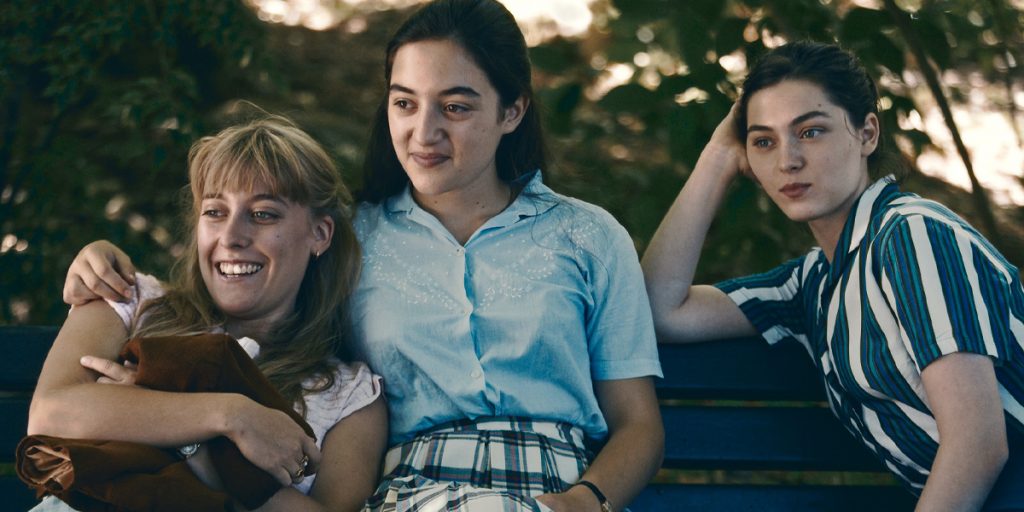Happening grabs you from the first minute and never lets go, taking you on a dark and real journey alongside a young woman facing an unwanted pregnancy in the 1960s.
French law changed in 1975 to decriminalise abortion. Before that, women had to do whatever was necessary, as discreetly as possible out of sight of the law, in order to terminate a pregnancy. Audrey Diwan’s (The Stronghold) Golden Lion-winner Happening (L’Événement) is set in the 1960s, before this law was passed, and follows one young woman on her suffocating, hellish journey after she finds out she is pregnant. Happening is as painful and as intimate as a film can be, never overdramatising the events but never turning a blind eye to the extremes of the story; it’s true and unwavering and one of the most rightfully harrowing pieces of cinema released in recent years.
Annie Ernaux’s novel of the same name recounts the author’s experience in the early 1960s when she fell pregnant. Diwan’s Happening stays respectfully and resolutely true to Ernaux’s story, with Anamaria Vartolomei (Méduse) playing the main protagonist Anne who, as a student studying Literature at college, has her life of education upended when she falls pregnant. Shot in claustrophobic 1.37:1 aspect ratio, which tightens the screen and in turn chokes both Anne and the audience, Diwan ensures we are always with her throughout Happening; the camera rarely leaves Anne’s side.
The ratio also mirrors the ever-narrowing options she has as her time to act runs out. But there is also a warmth and a tangibility to proceedings, with Laurent Tangy’s (The Stronghold) cinematography adding a real sensory element to Happening. Everything that Anne does and feels translates directly to the audience through intense close-ups, tracking shots, and even camera angles from her point of view. Happening is about this particular woman’s journey and struggle, and it never loses sight of that.
Diwan does not refrain from showing the brutal effect that the illegalisation of abortion had on women: one scene involving a knitting needle and another with a probe being inserted into the uterus by an abortionist are two intense and upsetting scenes, and they need to be in order to hammer home the inhumanity of this time period as well as the violent randomness of illegal abortion in comparison to its medicalised form. Vartolomei produces some of the finest acting of the year throughout Happening, but it is these forceful moments that may be remembered the most.
The camera never leaves her face during them, Vartolomei etching the unbearable pain onto Anne’s face with unbreakable strength and conviction; the graphically powerful sound design unrelentingly adds to this suffering. Happening is striking in how it portrays not just these painful moments but everything Anne goes through. The film has an almost matter-of-fact manner to how it plays out, and this true-to-life tone is terrifying. Vartolomei captures the very essence of her character: a woman reacting to a panicked situation within a world that doesn’t allow her any form of escape – legally at least.

The rigidity of Happening in its form and structure grounds the story in real time, directly in sync with Anne’s choices. Diwan effectively uses chapter headings to signal time ticking away, with the titles here notarising how far along Anne is in her pregnancy and ensuring Happening’s tension grows with every beat. Evgueni and Sacha Galperine’s (Murina) score further cements this pressure, their discomforting mixture of soft piano, harsh guitar twangs and sombre strings morphing into a dreaded musical beast and playing in rhythm with Anne’s experiences. As Happening proceeds and Anne’s options begin to narrow, the risks – both mental and physical – that she has to take become an increasingly powerful procession of tough moments.
Mirroring Ernaux’s own experience and novel, Happening finds some happiness and freedom amidst all of the pain. The film is about abortion, but on a wider scale it’s about a young woman liberating herself from what society deems legal and acceptable. Aside from her pregnancy, Anne rebels through sexual experiences with men, directly going against society’s expectations for women to repress any such urges.
The lack of support for Anne, even from other women, is damning and indicative of a time when even the word ‘abortion’ was unutterable: no character, not even Anne, says it once in Happening. And of course, even though the film is set in the 1960s, its themes can be paralleled to present day societies, even ones where abortion is technically legal. Calling Happening urgent or timely feels almost reductive, in a way stating the obvious so much that it lessens its impact. Instead, it is a film that needs to be experienced and lived, in order to visualise not just Anne’s story, but all the women who have had to fall silent in the past and the present.
Happening had its UK Premiere at the 2022 Glasgow Film Festival on 8-9 March, 2022. The film will be released theatrically in the UK on April 22, and in the US on May 6, 2022.

